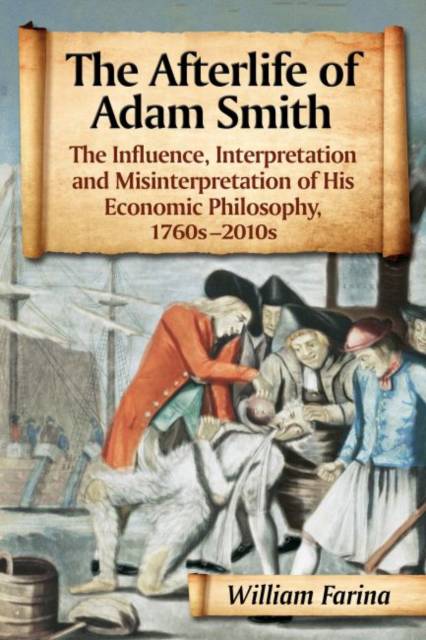
- Afhalen na 1 uur in een winkel met voorraad
- Gratis thuislevering in België vanaf € 30
- Ruim aanbod met 7 miljoen producten
- Afhalen na 1 uur in een winkel met voorraad
- Gratis thuislevering in België vanaf € 30
- Ruim aanbod met 7 miljoen producten
Zoeken
The Afterlife of Adam Smith
The Influence, Interpretation and Misinterpretation of His Economic Philosophy, 1760s-2010s
William Farina
Paperback | Engels
€ 59,45
+ 118 punten
Omschrijving
Mark Twain once quipped that a "classic [is] something that everybody wants to have read and nobody wants to read." This definition fits Adam Smith's timeless work The Wealth of Nations, published in 1776 on the eve of the American Revolution. For more than two centuries, partisans and pundits across the political spectrum have selectively quoted (or purported to quote) Smith's masterpiece of economic theory in support of legislative agendas and public policy. Smith himself would have been surprised at the near universal acceptance of his theories, especially given changes in the world economy since the 18th century. This book provides a close reading of his work, revealing a complex intellect schooled in the high moral ideals of classical philosophy, yet firmly grounded in the pragmatism of international trade and commerce.
Specificaties
Betrokkenen
- Auteur(s):
- Uitgeverij:
Inhoud
- Aantal bladzijden:
- 248
- Taal:
- Engels
Eigenschappen
- Productcode (EAN):
- 9780786494842
- Verschijningsdatum:
- 29/07/2015
- Uitvoering:
- Paperback
- Formaat:
- Trade paperback (VS)
- Afmetingen:
- 152 mm x 226 mm
- Gewicht:
- 340 g

Alleen bij Standaard Boekhandel
+ 118 punten op je klantenkaart van Standaard Boekhandel
Beoordelingen
We publiceren alleen reviews die voldoen aan de voorwaarden voor reviews. Bekijk onze voorwaarden voor reviews.











